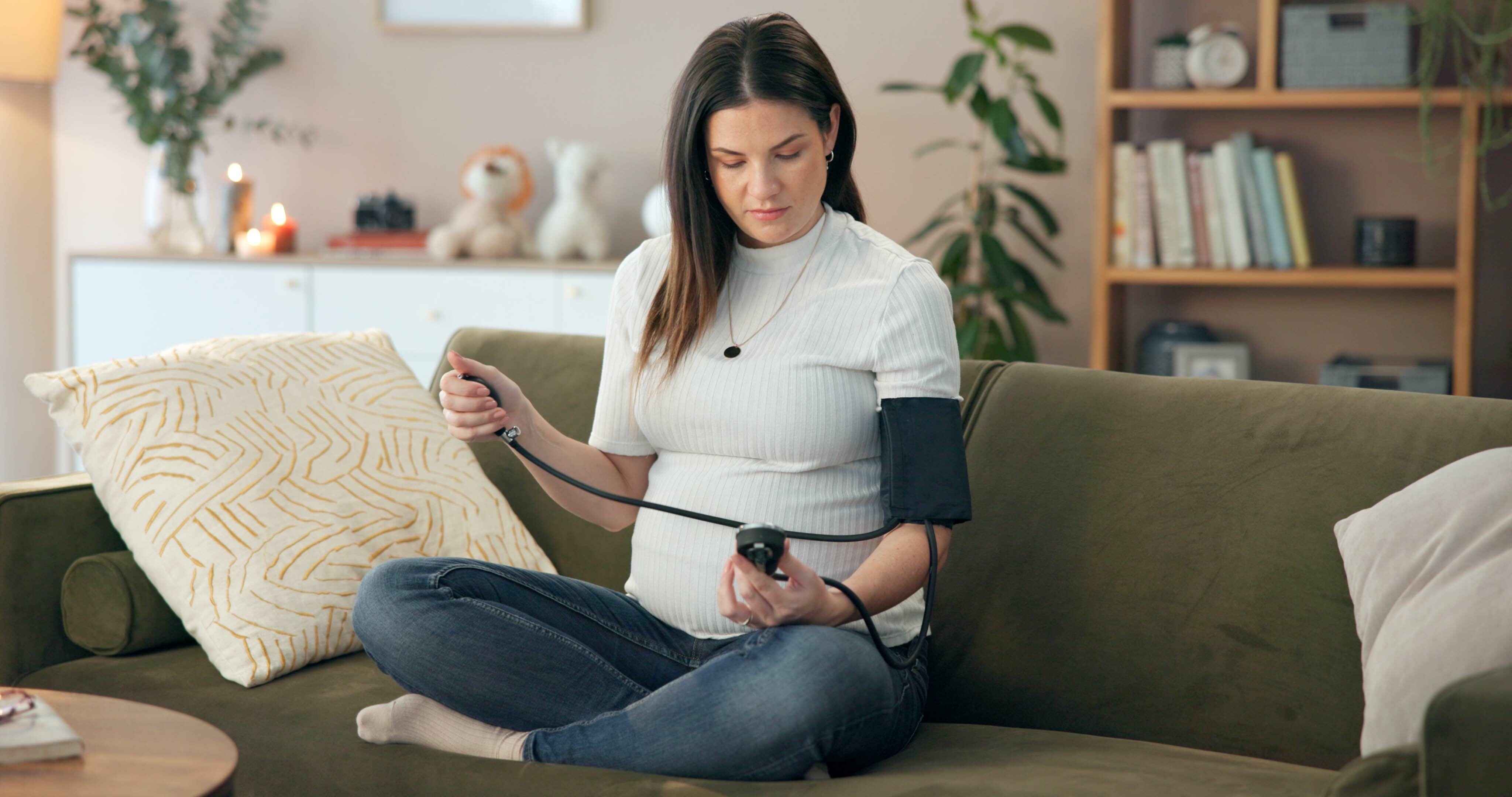Eclampsia - Symptoms, Causes, Diagnosis and Treatment

What is Eclampsia?
An uncommon yet dangerous side effect of preeclampsia is eclampsia. Preeclampsia is a pregnancy condition characterized by elevated blood pressure and protein in the urine. Eclampsia occurs when a pregnant person with preeclampsia experiences seizures, often known as convulsions. Episodes of shaking, disorientation, and bewilderment brought on by aberrant brain activity are known as seizures. Eclampsia usually manifests itself after the 20th week of gestation. Eclampsia needs immediate medical attention and might lead to pregnancy difficulties.
Causes of Eclampsia
Preeclampsia usually precedes eclampsia. Your blood vessels are compressed by high blood pressure, which is caused by preeclampsia. Your brain may enlarge, which might cause convulsions. Eclampsia can also be induced by nutrition and genetics.
Symptoms of Eclampsia
The following are eclampsia's most typical symptoms: Seizures, extreme anguish or perplexity, and unconsciousness.
When to see a doctor for Eclampsia?
In case you get a new seizure while pregnant, go to the emergency department. Other signs of pregnancy that need to be attended to by a doctor are severe headaches, bleeding from the vagina, loss of vision or double vision, intense discomfort in the abdomen, throwing up, and/or little to no movement from the foetus.
Eclampsia Risk Factors
Preeclampsia is the primary risk factor for eclampsia. Most preeclamptic individuals do not progress to eclampsia. Furthermore, you can be more susceptible to eclampsia if:
- You are carrying many babies.
- You suffer from an autoimmune disease.
- You are obese (BMI more than 30) or have an unhealthy diet.
- You suffer from renal disease, hypertension, or diabetes.
- You are either older than 35 or younger than 17.
- You are pregnant for the first time.
- A personal or family history of eclampsia or preeclampsia.
Eclampsia Complications
Individuals who have eclampsia are more susceptible to
- Sudden caesarean section
- Premature labour
- Problems with blood coagulation
- Stroke
- Stillbirth
Eclampsia Diagnosis
Based on the occurrence of a seizure, your obstetrician makes the diagnosis of eclampsia. A physical examination, blood testing, and routine blood pressure monitoring will be done. To check for elevated protein in the urine, they also request tests.
- Blood testing: Abnormal results from blood tests, such as platelet or red blood cell counts, may be displayed.
- Urine tests: Tests on urine usually reveal high levels of protein in the urine.
- Tests for creatinine: Your kidneys normally filter waste products like creatinine out of your blood. Atypically elevated creatinine values may indicate renal failure.
To make sure the foetus is adjusting to pregnancy properly, your healthcare professional will use ultrasound monitoring to evaluate its growth, mobility, heart rate, and other parameters.
Eclampsia Treatment
Giving birth is the best way to treat eclampsia. It's typically better to induce labour if the foetus is at 37 weeks of gestation or older. If the foetus and you are stable, you may still give birth vaginally. To treat eclampsia during pregnancy, your doctor may recommend:
- Prescription anticonvulsants or an infusion of magnesium sulphate to stop seizures
- Prescription drugs for blood pressure reduction
- Steroids to support the lungs' growth and development in the developing foetus
Eclampsia Prevention
Your chance of getting eclampsia can be decreased by receiving treatment for preeclampsia. You may lower your risk by obtaining timely medical attention, going to all of your prenatal visits, and leading a healthy lifestyle. Preeclampsia and eclampsia might be more likely to occur in you if you have certain disorders, some of which are uncontrollable. If you are at higher risk, starting low-dose aspirin in the first trimester may help lower your chance of developing preeclampsia.
References
Bartal, M. F., & Sibai, B. M. (2022). Eclampsia in the 21st century. American journal of obstetrics and gynecology, 226(2), S1237-S1253.
Erez, O., Romero, R., Jung, E., Chaemsaithong, P., Bosco, M., Suksai, M., ... & Gotsch, F. (2022). Preeclampsia and eclampsia: the conceptual evolution of a syndrome. American journal of obstetrics and gynecology, 226(2), S786-S803.
Peraçoli, J. C., Borges, V. T. M., Ramos, J. G. L., Cavalli, R. D. C., Costa, S. H. D. A. M., Oliveira, L. G. D., ... & Cunha, E. V. D. (2019). Pre-eclampsia/eclampsia. Revista Brasileira de Ginecologia e Obstetrícia, 41, 318-332.
Sibai, B. M. (2005). Diagnosis, prevention, and management of eclampsia. Obstetrics & Gynecology, 105(2), 402-410.
Meet our doctors from the Mom care department















